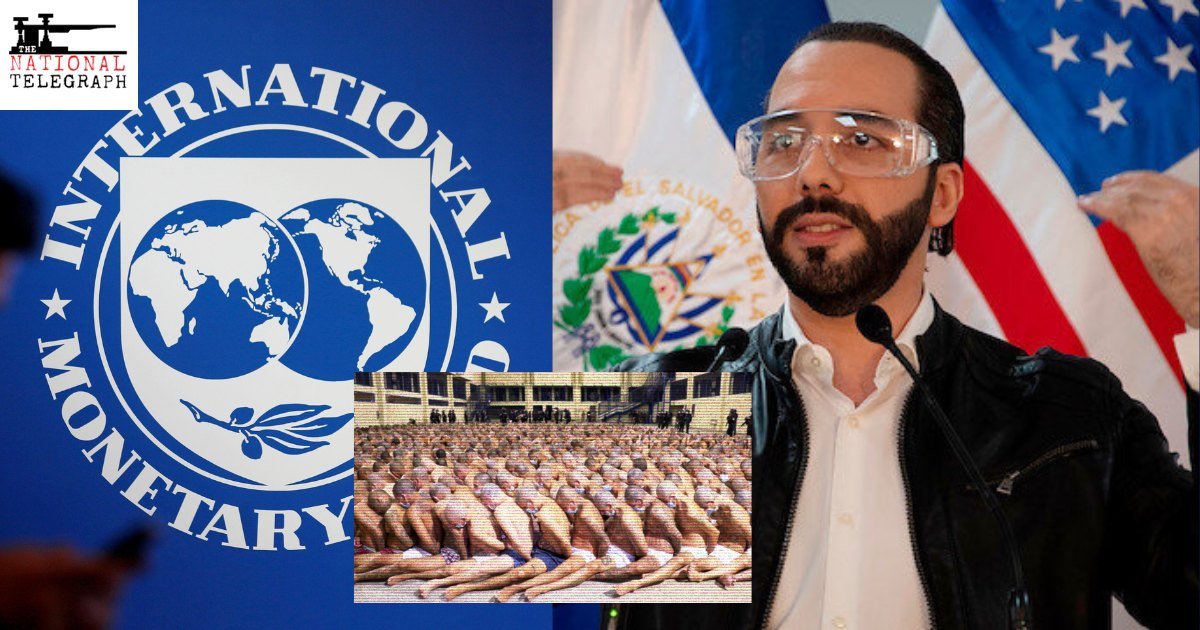Written By Neil McKenzie-Sutter, Posted on March 3, 2023

In an event that should’ve broken more headlines, El Salvador recently completed a debt payment of $800 million, including all relevant interest, to the IMF on Jan. 24th, 2023, and this event is significant for a variety of reasons.
In 2021, when Salvadoran President Nayib Bukele recognized Bitcoin as legal tender, the President drew much criticism, arguing El Salvador had doomed its economy. Now, with El Salvador having paid this debt, the Bitcoin detractors might have to eat their words.
But like it or not, it makes sense; especially from 2021 to the present, that Bukele’s diving headfirst into Bitcoin would come under IMF criticism.
Certainly, the IMF deserves criticism itself; that organization has been responsible for bankrupting numerous developing countries, but it is not surprising that the IMF wants to have its loans paid back.
In this framing, Bukele’s timing, recognizing Bitcoin as legal tender in late 2021 almost couldn’t have been worse, as 2022 was Bitcoin’s second worst price-performing year ever; falling from the 2021 all-time high of 68.7k to 15.7k in 2022.
Percent-wise that’s a drop in value of 65% and an unqualified disaster. Fortunes related to crypto were wiped out in 2022, and so those without sophisticated knowledge of what was happening on the ground in El Salvador could be forgiven for imagining Bukkele’s bet on Bitcoin might cause short-term problems.
But to give rare credit to the IMF, the organization issued a mixed assessment of El Salvador’s 2021 economic performance, saying Bitcoin’s risks ‘… have not materialized…,’ although the organization continued to caution further integrating Bitcoin into El Salvador’s economy.
On top of this, however, in the same report, the IMF admonished El Salvador had made a full economic recovery in 2021 from the worldwide pandemic downturn of 2020; a significant accomplishment by any nation, let alone one still reeling in the aftereffects of a civil war that lasted from 1979 – 92.
In this context, El Salvador’s recognition of Bitcoin as a legal tender is not totally out of left field, as the country does not have its own national currency. El Salvador began using the U.S. dollar directly as legal tender in 2001 after the civil war collapsed the ‘Salvadoran Colón’ value. To be clear, El Salvador currently recognizes two currencies as legal tender actively: the U.S. dollar and Bitcoin.
An additional reason why El Salvador adopted the U.S. dollar is that a significant part of El Salvador’s economy comes from remittances sent into the country from Salvadorans abroad, mostly in the U.S.
In 2019, remittances made approximately 20% of El Salvador’s GDP or 6 billion dollars. According to the IMF, this percentage of an economy being composed of remittances is one of the world’s highest.
Also then, with this being the scale of remittances, it’s not that surprising to find the Salvadoran President interested in Bitcoin, as it is a direct, peer-to-peer payments network.
It is still early days, but going into the future, President Bukkele has enabled expatriate Salvadorans sending remittances to save untold amounts of money on fees using Bitcoin, that would otherwise be paid to financial middlemen.
This situation among other examples makes it clear President Bukkele and his administration have some serious economic street smarts. Indeed, if El Salvador’s fortunes were solely based on Bitcoin’s price, El Salvador’s economy should’ve collapsed due to Bitcoin’s massive drawdown in price from late 2021 on.
In fact, El Salvador’s economy made significant and unprecedented gains in 2021; obtaining 10.3% GDP growth in 2021, according to IMF statistics. This growth rate put El Salvador in the top 20 GDP gainers in 2021 and for comparison, the economic powerhouse of China only reached 8.1% GDP growth in 2021.
Again, it must be underlined that this 10.3% output is significant because pundits were calling for the exact opposite: El Salvador’s economy to crash & burn due to the country accepting Bitcoin.
Although not related to the price so far, Bitcoin has only been an economic boon for El Salvador, as in 2021 the country launched a renewed, Bitcoin-focused tourism plan, which has seen explosive success.
Then too, closely linked to El Salvador’s revamped interest by tourists is the 2022 crackdown on MS-13 gang activity by the police and military.
MS-13 was originally set up in the 1970s-80s to protect Salvadoran immigrants and refugees in the United States, but in modern times it has become one of the most violent gangs in the Western Hemisphere.
El Salvador’s crackdown on gang activity has been aggressive, and even legacy media outlets acknowledge the country should see further economic growth if gang activity is permanently repressed.
In addition to all this, President Bukele and his administration have opened numerous avenues for foreign direct investment [FDI] into El Salvador, especially if that FDI comes in the form of Bitcoin.
The World Bank has estimated El Salvador’s GDP growth to be 2.4% in 2022, and 2% in 2023; a significant downturn from 2021’s 10.3%, but the official numbers for 2022 have yet to be published so perhaps we should wait and see.
After all, the World Bank, IMF, and the central banking crowd have been wrong about El Salvador before.
Hey there You have done a fantastic job I will certainly digg it and personally recommend to my friends Im…